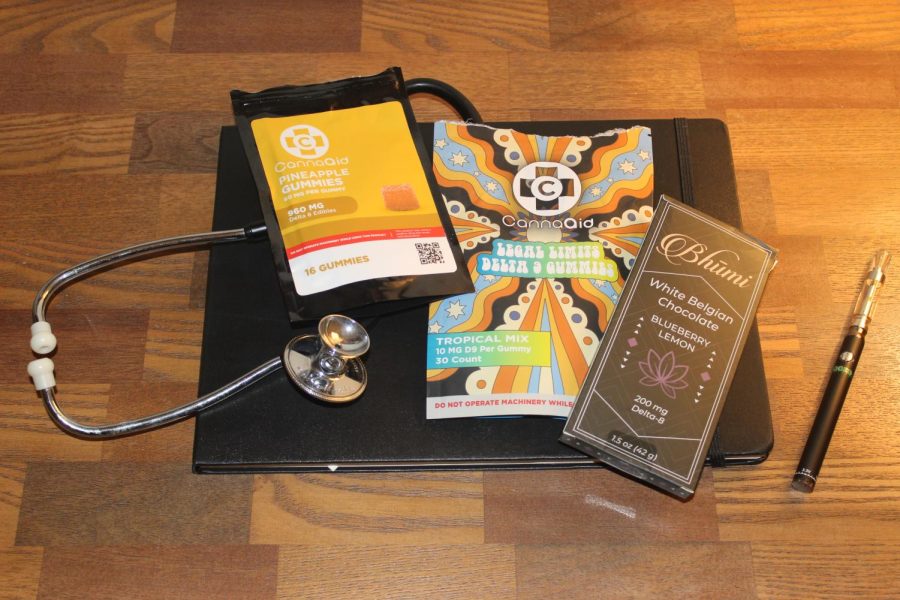Why your health care worker may be vaping CBD
CBD and related products can be found in many dosages and forms, including chocolates, gummies and vape cartridges.
March 11, 2022
It was a rare night in the hospital. No alarms went off and no call bells rang. It was only midnight and all the patients in my group were somehow actually sleeping. As I sat at the nurse’s station, giving my feet a break and catching up on charting, my friend and co-worker, Brittany, who passed her nursing boards in 2020 as COVID cases surged across the nation, sat down beside me.
One of the perks of working with doctors and nurses is the free advice, and so I told her that caring for patients during the pandemic had my anxiety running overtime and I was considering using CBD to help manage it. A lot of health care workers use CBD, she told me. As it turned out, she used it herself.
“It’s really helped me tremendously with anything stress-induced or anxiety-based. You know, the world might be crashing, but I can handle it,” Brittany told me over the phone when I interviewed her the next week.
CBD is one of the most active ingredients in marijuana, and using it is legal in North Carolina. Nationally, it is a multi-billion dollar industry. CBD is sold in oils, vape cartridges and edibles like lollipops and gummies. It’s so ubiquitous that you can even buy CBD treats for your pets to help them with their anxiety.
Brittany says that conversations with her colleagues have made her aware of just how prevalent CBD use is in health care, especially with older workers. “I mean, it helps with aches and pain, too. I’m only in my 20s and I already have aches and pains. That’s just the nature of the job. They make CBD muscle creams. You just rub it on and you’re like, oh my gosh, this helps so much more than other things.”
CBD use when you’re in a job that requires pre-employment and post-incident drug testing can be a bit tricky. Many CBD products do contain trace amounts of THC, the main psychoactive ingredient in marijuana, the part responsible for feeling high, which can be picked up in drug screening.
There is positive news on this front, however. In 2019, North Carolina Magistrate Judge David S. Cayer ruled that a woman who used CBD oil to treat a medical condition could move forward with a wrongful termination suit against an employer who fired her after a drug test turned up positive for THC.
Jean Smith, a former worker for Manheim Statesville, claimed she was using a legal product when she suffered a workplace injury and visited an Urgent Care, where she was given the post-incident drug screen. She was let go from her position because THC, the company claimed, is a controlled substance. Cayer disagreed. According to North Carolina law, it’s perfectly okay to use CBD products that have up to .3% THC.
Still, many health care workers are hesitant to bring up their use of the product. It seems there is a stigma attached to using CBD, fear that they will be seen as less professional or that CBD use while not on duty will be seen as affecting their job. It’s the reason I didn’t write this article when I first interviewed Brittany a year ago. Too many nurses I approached were afraid they might be drug-tested if they spoke up.
Is Brittany concerned about being drug-tested or talking about her experience using CBD?
“Not really. I would definitely encourage people to try it,” she said. “Stress is a part of life, and I know it’s been good for me. And it’s holistic. It doesn’t have any side effects. So why not?”
I’m not a doctor and I can’t make any claims about the side effects of CBD, but many people claim it helps with their anxiety. The stress of working in health care in the midst of a pandemic has not decreased, so maybe it’s time we start discussing CBD use among nurses and whether or not it can help them without affecting patient care.


















